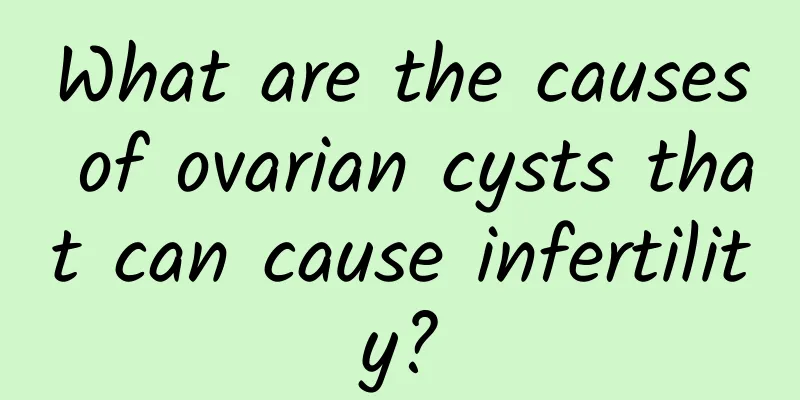What are the symptoms of adnexitis?

|
What are the symptoms of adnexitis? Adnexitis is the most common gynecological disease and is very harmful to women. In order to reduce the occurrence of adnexitis, we should understand some of the symptoms of adnexitis. So what are the symptoms of adnexitis? Let's take a look at the symptoms of adnexitis. Generally speaking, adnexitis is a common disease caused by pathogenic microorganisms invading the reproductive organs and causing infection of the fallopian tubes and ovaries. It is divided into two types: acute and chronic. The symptoms of adnexitis are as follows: Symptoms of acute adnexitis The symptoms of acute adnexitis are mainly acute lower abdominal pain, accompanied by fever. During gynecological examination, there is obvious tenderness and rebound pain in the adnexal area. Routine blood tests show an increase in white blood cells and a significant increase in the proportion of neutrophils. Symptoms of adnexitis: If acute adnexitis is not treated in time or thoroughly, it may turn into chronic adnexitis. Oral antibiotics and topical medications can relieve and eliminate inflammation. Symptoms of chronic adnexitis Chronic adnexitis causes varying degrees of abdominal pain. Chronic inflammation recurs over time, causing pelvic congestion, connective tissue fibrosis, and adhesion of pelvic organs. Patients experience symptoms such as lower abdominal distension, pain, and lumbar pain, which may be mild or severe, accompanied by increased vaginal discharge, back pain, and menstrual disorders, which often worsen during menstruation or after fatigue. During gynecological examinations, there is tenderness, thickening, or tender masses in the bilateral or unilateral adnexal areas, and the number of white blood cells is elevated or normal. It is worth noting that some symptoms of adnexitis are not very obvious sometimes, but because the fallopian tubes and ovaries are adjacent, it is difficult to distinguish when inflammation occurs. Especially chronic inflammation of the fallopian tubes, over time, can lead to fibrosis, thickening and obstruction of the fallopian tubes, and can also adhere to surrounding tissues. If both ends of the fallopian tubes are blocked, hydrosalpinx can form, and the accumulated water will penetrate into the ovaries that are adhered together, forming a fallopian tube cyst. This is the main cause of post-marital infertility or ectopic pregnancy. The above is an introduction to the symptoms of adnexitis. Do you have a deeper understanding of the symptoms of adnexitis? If you have symptoms of adnexitis, please go to the hospital for treatment in time. If you have any questions about adnexitis, please consult our online experts for answers. Adnexitis http://www..com.cn/fuke/fuke/fjy/ |
<<: How to provide emergency treatment for ectopic pregnancy?
>>: What are the prevention methods for adnexitis?
Recommend
Can I just buy some fruit and put it in the refrigerator? (middle)
However, she reminded that fruits that are not ye...
What are the hazards of cervical erosion in women? Here are some common sense to prevent cervical erosion
Does cervicitis affect fertility? Many women are ...
What are the main hazards of suffering from uterine fibroids?
Among the many types of gynecological diseases, u...
The dangers of premature ovarian failure
The dangers of premature ovarian failure: If a wo...
How much does it cost to check for cervical warts?
I believe many of you have a certain understandin...
It's always itchy down there, but it can't be cured by just washing
I am usually very clean and pay attention to hygi...
Common inspection items before abortion
What are the common examination items before abor...
When can I have sex after uterine fibroid surgery?
Regarding the question of having sex after surger...
What are the common clinical symptoms of chronic adnexitis?
Everyone should be familiar with adnexitis, but a...
How to cure endometrial thickening?
When suffering from endometrial thickening, we sh...
Hidden diseases that thin people may also have! 3 nutritional tips to help you get rid of fatty liver
"Nutritionist, how can I have fatty liver di...
How to use medicine for ovarian cysts
Ovarian cysts are benign tumors that grow in the ...
What are the sequelae of uterine fibroid bleeding? What kind of blood is uterine fibroid bleeding?
What are the sequelae of uterine fibroid bleeding...
Beyonce chili lemon juice weight loss fat can not be eliminated
In order to show their best side, both men and wo...
No change in body weight after exercise? There may be something wrong with the sports menu!
It can be frustrating to exercise regularly for a...









